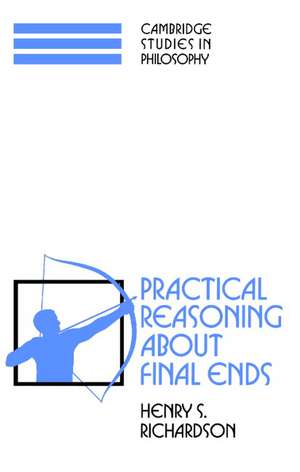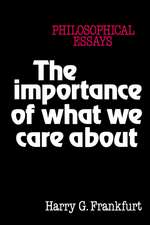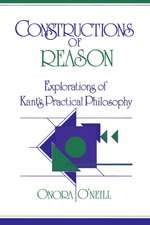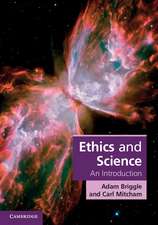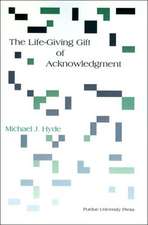Practical Reasoning about Final Ends: Cambridge Studies in Philosophy
Autor Henry S. Richardsonen Limba Engleză Paperback – 27 feb 1997
| Toate formatele și edițiile | Preț | Express |
|---|---|---|
| Paperback (1) | 378.11 lei 6-8 săpt. | |
| Cambridge University Press – 27 feb 1997 | 378.11 lei 6-8 săpt. | |
| Hardback (1) | 687.77 lei 6-8 săpt. | |
| Cambridge University Press – 24 noi 1994 | 687.77 lei 6-8 săpt. |
Din seria Cambridge Studies in Philosophy
-
 Preț: 153.58 lei
Preț: 153.58 lei - 14%
 Preț: 769.32 lei
Preț: 769.32 lei -
 Preț: 225.97 lei
Preț: 225.97 lei -
 Preț: 323.18 lei
Preț: 323.18 lei -
 Preț: 173.58 lei
Preț: 173.58 lei -
 Preț: 433.93 lei
Preț: 433.93 lei -
 Preț: 262.35 lei
Preț: 262.35 lei -
 Preț: 387.37 lei
Preț: 387.37 lei - 11%
 Preț: 688.23 lei
Preț: 688.23 lei -
 Preț: 408.57 lei
Preț: 408.57 lei - 11%
 Preț: 445.99 lei
Preț: 445.99 lei - 11%
 Preț: 577.02 lei
Preț: 577.02 lei - 11%
 Preț: 423.03 lei
Preț: 423.03 lei -
 Preț: 273.50 lei
Preț: 273.50 lei - 11%
 Preț: 427.52 lei
Preț: 427.52 lei -
 Preț: 449.76 lei
Preț: 449.76 lei -
 Preț: 223.67 lei
Preț: 223.67 lei - 11%
 Preț: 691.14 lei
Preț: 691.14 lei - 14%
 Preț: 675.49 lei
Preț: 675.49 lei - 14%
 Preț: 696.12 lei
Preț: 696.12 lei -
 Preț: 239.48 lei
Preț: 239.48 lei -
 Preț: 319.40 lei
Preț: 319.40 lei - 14%
 Preț: 863.75 lei
Preț: 863.75 lei - 11%
 Preț: 691.81 lei
Preț: 691.81 lei -
 Preț: 433.93 lei
Preț: 433.93 lei - 11%
 Preț: 456.26 lei
Preț: 456.26 lei - 11%
 Preț: 611.45 lei
Preț: 611.45 lei - 11%
 Preț: 688.23 lei
Preț: 688.23 lei -
 Preț: 313.85 lei
Preț: 313.85 lei -
 Preț: 220.42 lei
Preț: 220.42 lei - 11%
 Preț: 687.59 lei
Preț: 687.59 lei -
 Preț: 209.44 lei
Preț: 209.44 lei -
 Preț: 284.89 lei
Preț: 284.89 lei -
 Preț: 281.12 lei
Preț: 281.12 lei - 11%
 Preț: 692.50 lei
Preț: 692.50 lei -
 Preț: 291.93 lei
Preț: 291.93 lei - 14%
 Preț: 740.63 lei
Preț: 740.63 lei - 11%
 Preț: 687.02 lei
Preț: 687.02 lei - 11%
 Preț: 525.56 lei
Preț: 525.56 lei - 11%
 Preț: 693.18 lei
Preț: 693.18 lei - 11%
 Preț: 688.92 lei
Preț: 688.92 lei - 11%
 Preț: 686.42 lei
Preț: 686.42 lei - 11%
 Preț: 693.78 lei
Preț: 693.78 lei - 11%
 Preț: 583.02 lei
Preț: 583.02 lei - 11%
 Preț: 686.53 lei
Preț: 686.53 lei -
 Preț: 394.56 lei
Preț: 394.56 lei
Preț: 378.11 lei
Nou
Puncte Express: 567
Preț estimativ în valută:
72.35€ • 75.54$ • 59.88£
72.35€ • 75.54$ • 59.88£
Carte tipărită la comandă
Livrare economică 04-18 aprilie
Preluare comenzi: 021 569.72.76
Specificații
ISBN-13: 9780521574426
ISBN-10: 0521574420
Pagini: 344
Dimensiuni: 138 x 215 x 23 mm
Greutate: 0.36 kg
Ediția:Revised
Editura: Cambridge University Press
Colecția Cambridge University Press
Seria Cambridge Studies in Philosophy
Locul publicării:New York, United States
ISBN-10: 0521574420
Pagini: 344
Dimensiuni: 138 x 215 x 23 mm
Greutate: 0.36 kg
Ediția:Revised
Editura: Cambridge University Press
Colecția Cambridge University Press
Seria Cambridge Studies in Philosophy
Locul publicării:New York, United States
Cuprins
Part I. Problem: 1. Introduction; 2. Practical reasoning; Part II. Scope: 3. Ends in deliberation; 4. Specifying ends; Part III. System: 5. Value incommensurability; 6. Is commensurability a prerequisite of rational choice?; 7. Practical coherence; 8. Reflective sovereignty; Part IV. Source: 9. Sources and limits; 10. Ultimate ends; Part V. Disagreement: 11. Interpersonal deliberation; 12. Disagreement in concept and in practice; 13. Dialectical softening; 14. Realizing rationality.
Recenzii
'This profound and important book challenges a common assumption about rationality: that all rational deliberation involves the selection of instrumental means to ends that are set by some non-rational process, for example by desires that are themselves impervious to reasoning. Drawing resourcefully on arguments of Aristotle and Plato, Richardson constructs an impressive account of the rationality involved in our selection and modification of our ultimate ends, and particularly of the ways in which a vague end can be more and more adequately specified by reflection. In the process, he offers the best account I have seen of the arguments for and against the claim that all values can be measured by a single common metric.' Martha Nussbaum, University of Chicago Law School
Descriere
This book argues against philosophical opponents, that we can determine our ends or goals rationally.
